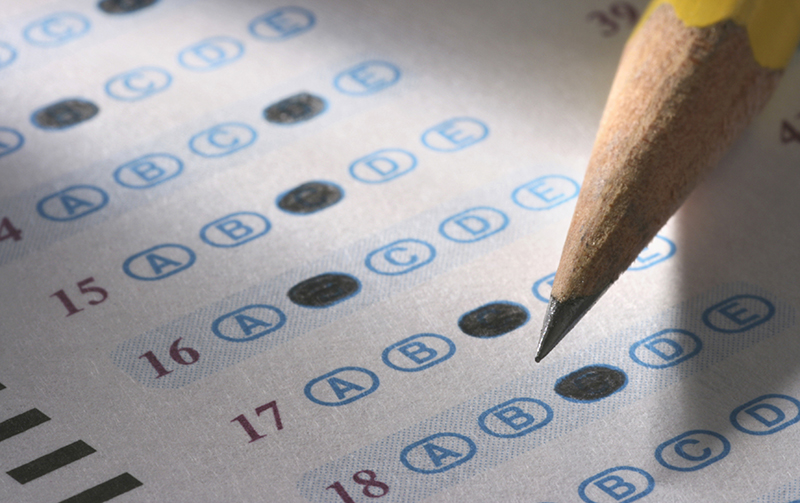What Are SJT Test Questions? A Complete Beginner’s Guide

Strong 8k brings an ultra-HD IPTV experience to your living room and your pocket.
For medical students and junior doctors preparing for their licensure or foundation training exams, understanding SJT test questions is essential. These assessments are designed not to test clinical knowledge, but to evaluate your decision-making, professionalism, ethics, and ability to work under pressure in a clinical setting. In this comprehensive guide, we explore everything a beginner needs to know about the situational judgement test (SJT), particularly within the context of medical careers.
What Is a Situational Judgement Test (SJT)?
A situational judgement test is a psychological assessment tool that presents candidates with real-world, job-relevant scenarios. In medical SJTs, scenarios often involve ethical dilemmas, patient care issues, team dynamics, or professional behavior challenges. You're expected to evaluate each situation and select the most appropriate response or rank the responses based on effectiveness.
These tests are widely used by healthcare regulators and recruitment bodies in the UK, including the UK Foundation Programme Office (UKFPO), which administers SJTs to junior doctors seeking entry into foundation training.
Purpose of SJT Test Questions in Medicine
SJT test questions serve a critical role in identifying qualities like empathy, integrity, resilience, and communication skills. These are all competencies that cannot be assessed through traditional academic exams.
Key competencies assessed in medical SJTs include:
- Patient focus and safety
- Teamwork and leadership
- Professional integrity and ethics
- Coping with pressure
- Decision-making in uncertain situations
Unlike other assessments, SJT answers are not about “right” or “wrong” in a clinical sense, but about "most appropriate" or "least appropriate" actions based on established medical ethics and professional conduct.
Structure and Format of Medical SJTs
SJTs for junior doctors usually consist of 70–75 questions to be completed in around 110–120 minutes. The questions are typically formatted in two ways:
Ranking Questions
You’ll be given a scenario followed by four or five response options. You must rank these responses from most appropriate to least appropriate.
Multiple-Choice Selection (Best Actions)
You'll select three out of eight possible actions that best address the scenario presented.
Each test is meticulously crafted to reflect the day-to-day responsibilities of a junior doctor. The goal is not to test your clinical skills but to assess how you would behave in specific professional contexts.
Why SJTs Matter for Medical Students and Junior Doctors
SJTs are often a major component of selection processes for foundation years, specialty training, and even international qualifications. In the UK, for example, the Foundation Programme SJT carries 50% of your application score—equal in weight to your academic performance. This makes it crucial to understand how SJTs work and how to prepare strategically.
- Your ability to perform well on SJTs directly impacts:
- Your medical career progression
- Your chances of matching into competitive specialties
- Your placement within preferred hospital trusts
That’s why preparing for SJT test questions with a dedicated question bank is an intelligent approach to mastering these assessments.
How Our Curated SJT Question Bank Helps
At our platform, we specialize in supporting medical students and junior doctors with a comprehensive, scenario-rich SJT question bank tailored to your exam needs. Our curated content focuses on:
- Realistic clinical scenarios encountered in NHS hospitals.
- Thorough explanations for every response—helping you learn from both correct and incorrect choices.
- Adaptive difficulty levels, so you can grow from beginner to exam-ready.
- AI-analyzed performance feedback, showing your strengths and areas to improve.
Our mission is to help junior doctors succeed in their exams and prepare for real-world decision-making through well-structured preparation and expert-reviewed content.
Common Types of SJT Scenarios You Must Master
Understanding the different types of scenarios that commonly appear in situational judgement tests is key to improving your accuracy and confidence. Here are some frequent themes:
- Ethical dilemmas (e.g., reporting a senior colleague’s error)
- Patient confidentiality and consent
- Working in multidisciplinary teams
- Handling complaints or difficult patients
- Time and priority management on a busy ward
Preparing through exposure to these recurring themes is vital for scoring well.
Tips to Score High in SJT Test Questions
Learn the Core Competency Framework
Understand the professional attributes that the exam is designed to test. This includes NHS values and GMC guidelines.
Think Professionally, Not Personally
Responses should reflect what is best for patient care and professional integrity—not just what seems personally convenient.
Practice Scenario Analysis
Don’t memorize answers. Focus on analyzing the logic behind why a response is more appropriate than another.
Time Management Is Key
Some questions may seem long or complex. Practice pacing yourself and don’t get stuck.
Seek Feedback and Reflect
Use question banks that provide detailed rationales and scoring to help you understand patterns in your decision-making.
Top FAQs About SJT Test Questions
1. How is the SJT different from other medical exams?
Unlike traditional exams, the situational judgement test assesses professional behavior, ethical reasoning, and communication skills rather than academic knowledge or clinical expertise.
2. Are there correct answers in SJTs?
Not always in the conventional sense. SJTs assess judgment. Answers are evaluated based on consensus from subject matter experts and alignment with professional guidelines.
3. How can I best prepare for SJT test questions?
By practicing through high-quality, scenario-based SJT test questions that come with detailed explanations. Our platform offers the right tools to simulate real exam conditions and decision-making processes.
4. How long should I prepare for an SJT?
Most candidates benefit from preparing for 4–6 weeks, practicing consistently and reflecting on performance after each session.
5. Is clinical knowledge helpful for SJTs?
To a limited extent. However, SJTs focus more on behavioral and ethical reasoning than clinical interventions. A basic understanding of clinical workflow helps, but isn’t the core focus.
Final Thoughts: Why Smart SJT Preparation Matters
Succeeding in an SJT is about more than scoring well—it’s about being the kind of doctor patients and colleagues trust. It reflects your ability to uphold standards of care, make ethical decisions, and work in high-pressure environments. For junior doctors preparing for foundation years or other medical exams, practicing with a reliable and well-structured SJT question bank can make all the difference.
Whether you're just beginning or refining your strategy, our platform is committed to offering high-quality, real-life aligned preparation tools for future healthcare professionals.
Note: IndiBlogHub features both user-submitted and editorial content. We do not verify third-party contributions. Read our Disclaimer and Privacy Policyfor details.







